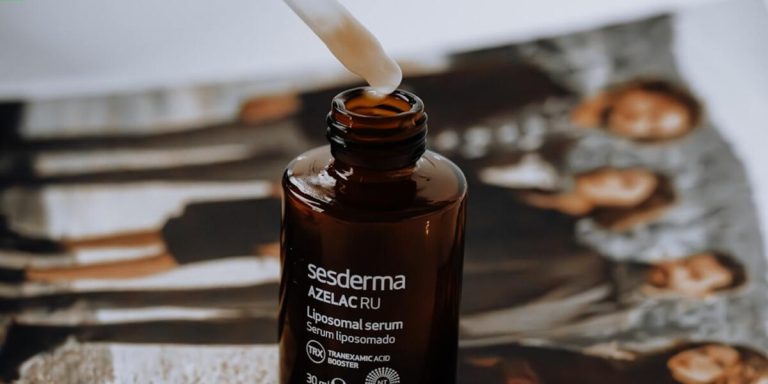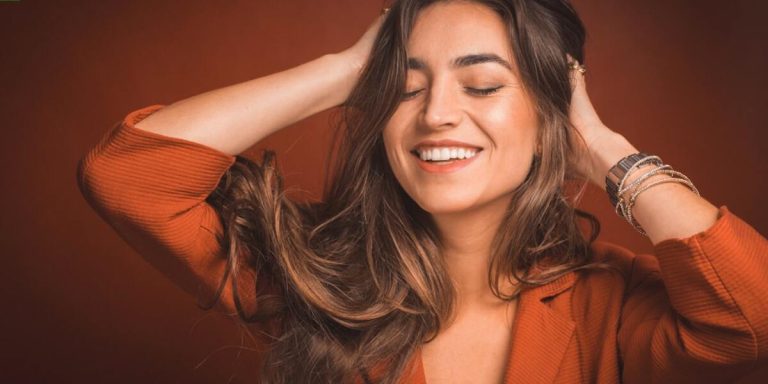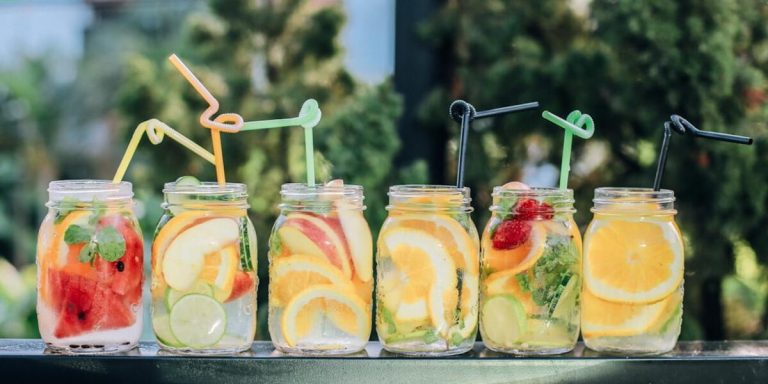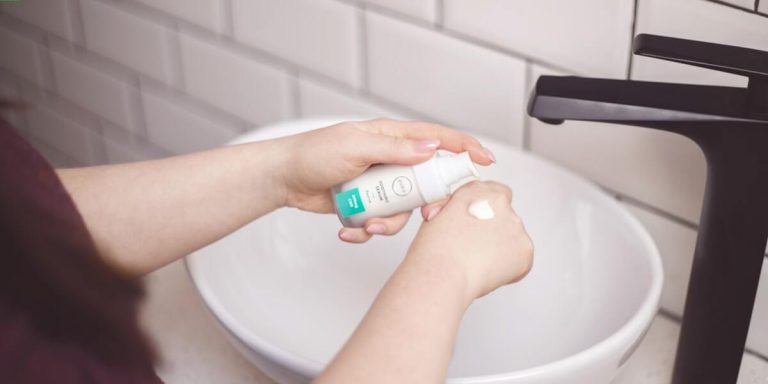Vitamin B and Hair Growth: Unveiling the Scientific Connection
Vitamin B and hair growth have an intriguing scientific relationship. If you’re dealing with hair loss or thinning, navigating the myriad of treatment options can be stressful. However, many experts recommend a solution found in our diet: vitamin B.
Read on to discover the science behind Vitamin B‘s role in promoting healthy hair growth and how this essential nutrient can lead to a fuller, faster-growing mane. This understanding is key to leveraging its benefits through various natural remedies.
Did you know?
Did you know? Vitamin B, especially B7 or biotin, is often nicknamed the “hair growth vitamin”. Studies show that a deficiency in it can actually lead to significant hair loss.
Understanding the Role of Vitamin B in Hair Growth
Vitamin B plays a crucial role in promoting hair growth, serving as an essential nutrient for maintaining healthy and lustrous hair. This group of vitamins improves cell metabolism, which aids in synthesizing amino acids—the building blocks of protein that strengthen your strands.
In 2023, advanced research continues demonstrating how Vitamin B plays a critical part in nourishing follicles from deep within. It not only supports existing hairs but also promotes new growth by channeling nutrients directly into each strand’s root via bloodstream circulation.
Moreover, specific components like biotin are observed to put up robust fights against dryness and elasticity loss while simultaneously reducing breakages.
Furthermore, these complexes have been linked with stimulated keratin production which provides intrinsic sustenance necessary for maintaining long-term vitality among tresses – ultimately accentuating overall thickness whilst slowing down premature greying incidents noticeably.
Therefore, incorporating ample portions of vitamin B derived from natural sources or supplements could indeed serve as strategic steps towards attaining those dreamy full-bodied manes you’ve always coveted!
Exploring the Different Types of Vitamin B Essential for Healthy Hair
Vitamin B, an essential nutrient for your body, maintains healthy hair through its crucial role. This miraculous vitamin consists of eight distinct types known collectively as Vitamin B Complex. Each type assists in cellular metabolism and provides unique benefits to hair health.
Firstly, we have Thiamine (B1), which helps the body metabolize proteins efficiently. Since your hair largely consists of protein structures called keratinocytes, efficient metabolism can significantly promote stronger and healthier mane growth.
The next significant type is Riboflavin (B2). Known as a ‘hair repair tool,’ it aids the growth cells that are responsible for building strong strands of locks while also producing antibodies combating various scalp issues like dandruff or eczema.
Pantothenic acid (B5) performs another critical task by acting as a natural conditioner making each filament softer while reducing frizzing tendencies simultaneously resulting in shinier looking tresses overall.
Scientific Evidence Linking Vitamin B Complex to Increased Hair Growth
Vitamin B holds a special place in the pantheon of hair growth vitamins. Research and numerous real-world examples have consistently highlighted its effectiveness. A deeper understanding will reveal why it’s such an essential factor.
In simple terms, Vitamin B plays a dual role when it comes to promoting healthy hair growth: nurturing the overall health of your scalp & encouraging faster, stronger hair development.
Let’s examine how vitamin B enhances scalp health. Picture your scalp as fertile soil from which your hair sprouts. Nourishing this ‘soil’ is potentially more essential than you might realize. Recent studies, including some from 2021, show that lacking certain types of vitamin B can cause problems such as dermatitis to alopecia, conditions that directly affect hair health negatively.
Popular for its potent ability boost keratin production,breakthrough research has suggested that biotin is key player in boosting both rate and consistency of new follicle development while also improving tensile strength.
Niacin on other hand opens up blood vessels,and thus helps improve circulation.Feel those tingles after consuming niacin-rich food or applying products topically?That’s increased blood flow boosting nutrient supply,yielding healthier,stronger strands over time!
The Benefits and Sources of Vitamin B for Optimal Hair Health
- Promoting growth and strengthening strands.
- Driving energy to the cells responsible for hair development, particularly your follicles.
- Providing essential nutrients needed for producing healthy locks.
Vitamin B plays a vital role in maintaining hair health by:
Although it doesn’t increase your hair’s natural growth rate, Vitamin B helps prevent shedding or thinning by nourishing follicle cells, ensuring optimum growth.
Insufficient Vitamin B intake can cause dry, brittle hair which may grow slowly or thin. Scarcity of these nutrients reduces the oxygen supply to our scalp, affecting overall health and leading to weak roots and a dull mane.
Natural Dietary Sources Rich in Vital B Vitamins
Natural dietary sources abound with various B vitamins that are essential for hair health and growth. It’s straightforward to include these nutrients in your diet, thus promoting lustrous locks without reliance on artificial supplements.
Firstly, let’s talk about whole grains – a treasure trove of the much-needed Vitamin B complex. Foods like brown rice, oatmeal, quinoa offer not only biotin but thiamine (B1), riboflavin(B2) as well which give your scalp a healthy look by nourishing it from within.
Secondly is eggs. A breakfast staple across cultures; this superfood is rich in multiple types of vitamin B besides being an excellent protein source. Regular consumption can boost both the strength and texture of your follicles.
If you’re into seafood or poultry then rejoice! Salmon, shellfish & chicken deliver niacin (B3). This important nutrient helps regulate blood flow to the scalp hence aiding overall hair voluminousness.
Supplementing with Vitamin B: What to Look For
Consider these key elements when adding Vitamin B to your hair care regimen:
Firstly, seek high-quality supplements from reputable manufacturers prioritizing purity and efficiency. Always choose dietary supplements that have undergone third-party testing and bear certifications or seals indicating adherence to rigorous quality standards. The market is flooded with thousands of options.
Secondly, not only focus on vitamin B as a whole but also pay attention to specific types such as:
- Biotin (B7) – strengthens the keratin structures in damaged strands.
- Niacin (B3) – improves scalp circulation and brings nutrients to hair follicles.
- Folic Acid (B9) – aids cell growth, promoting the development of healthy follicles for lustrous locks.
Thirdly take note; simply incorporating a supplement isn’t sufficient — balance is crucial here! Consuming excessive amounts can lead potentially adverse effects such as skin rashes among others which could overshadow potential benefits on offer hence why balancing intake becomes important!.
Lastly, check the ingredients list carefully for trace allergens if you have known allergies. Also, avoid fillers such as sugars and colorings where possible, as they can reduce absorption in the bloodstream and lower efficacy. Opt for pure options packed solely with their respective nutrients instead of those with unnecessary additives.
Addressing Deficiencies: How Lack of Vitamin B Affects Your Hair
Hair health closely relates to our overall well-being; imbalances or deficiencies in the body often show up as hair loss. Vitamin B has become widely recognized as a crucial nutrient for vibrant and robust hair growth in recent years. Yet, many people don’t realize how harmful a deficiency of this vitamin can be to their hair vitality.
Vitamin B plays a crucial role in maintaining healthy strands. This powerful group includes eight distinct types that each promote faster and stronger hair growth. Vitamin B helps produce red blood cells that supply scalp tissues with essential oxygen.
Deficiencies can cause weak, brittle hairs that break easily or even premature baldness. The silent nature of Vitamin B shortage means you might not notice it until significant changes occur, such as thinning patches on your scalp—a sight no one wants to see.
Identifying Symptoms of Vitamin B Deficiency Related to Hair Loss
Observing and identifying symptoms related to hair loss caused by a deficiency in Vitamin B is imperative. These subtle signs often go unnoticed, but they can mark the beginning of an undesirable journey towards hair thinning or baldness.
You may be deficient in Vitamin B if you experience unexplained fatigue, even with ample rest. Your body needs vitamin B to convert food into energy, and a deficiency can cause consistent tiredness and affect healthy follicle growth, possibly leading to thinner hair strands.
Another symptom closely linked with Vitamin B deficiency is feeling light-headed or dizzy frequently throughout the day without any identifiable cause like dehydration or low blood pressure etc .
Detecting this vitamin inadequacy becomes more apparent when you observe changes in your hair. Look out for these clear indicators that may suggest a nutritional imbalance:
- Premature greying
- Slow-growing hair
- An increase in shedding rate
These symptoms specifically point to the consequences of not consuming enough essential nutrients, especially B-group vitamins, in your diet.
Corrective Measures and Treatment Options for Reversing Hair Damage
If you’ve noticed excessive hair shedding or thinning, it may be due to a lack of Vitamin B in your diet. Thankfully, there are proactive corrective measures and treatment options available to reverse this damage.
Incorporate more Vitamin B-rich foods into your daily diet to easily boost your nutrient intake. Enjoy a variety of foods, including:
- Eggs
- Grains like quinoa and barley
- Meat products such as beef liver and chicken breast
Feast on these for a natural dietary supplementation strategy.
To immediately address a vitamin deficiency that has caused severe hair loss, consider using over-the-counter vitamin supplements. Make sure these supplements have high levels of biotin to boost keratin production, which is vital for stronger hair strands.
Treatments typically require about three months of consistent use, as recommended by manufacturers and health experts, to show noticeable improvements in growth rate or thickness. Patience is essential since results won’t appear overnight.
Conclusion
Exploring vitamin B’s role in hair growth reveals that this nutrient is a mane’s best friend. Vitamin B boosts hair health and strengthens each follicle at the root, fostering conditions for robust and shiny strands. Our discussion on “Vitamin B and Hair Growth” breaks down complex science to show its importance.
Put what you’ve learned into practice because knowledge should empower action. Good nutrition, especially essential vitamins for hair growth, is the foundation of every strand of lush, healthy hair. If you still have questions about ‘hair growth‘ or want to learn about nutrients other than Vitamin B for luscious locks, continue exploring our website for more information.







